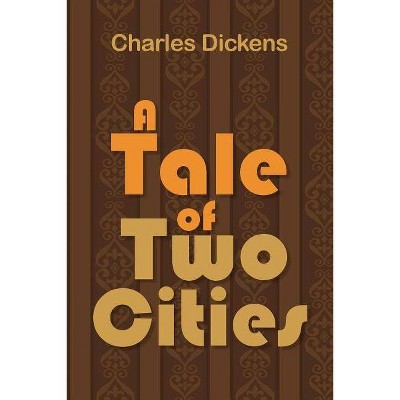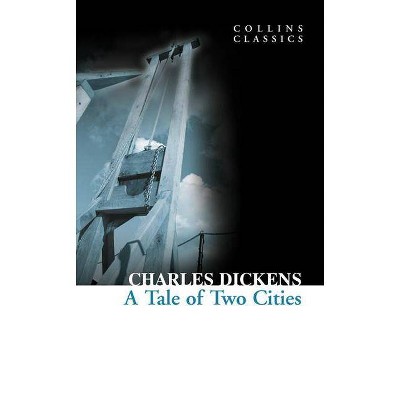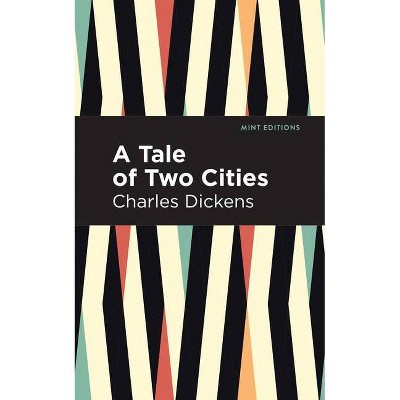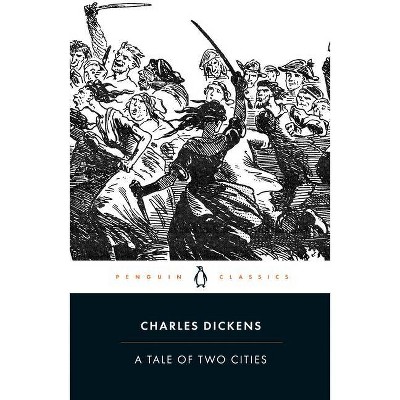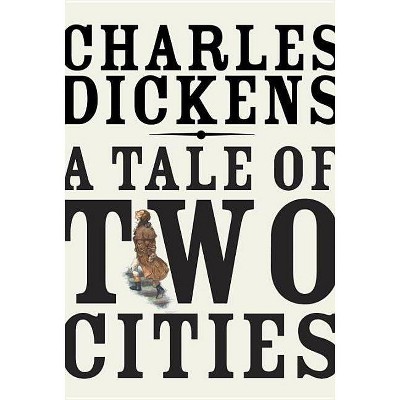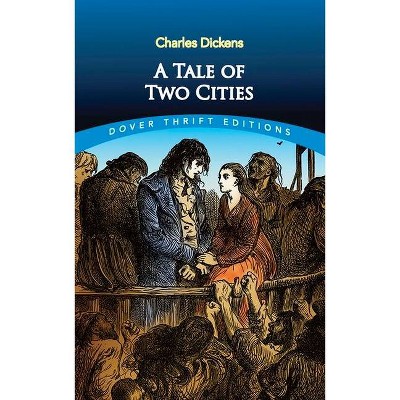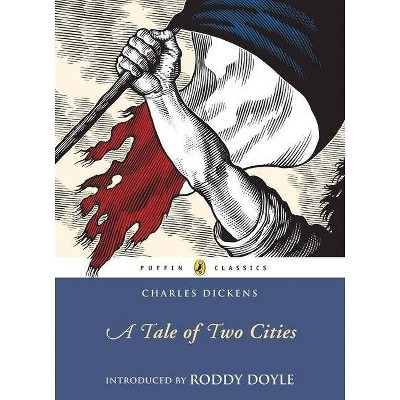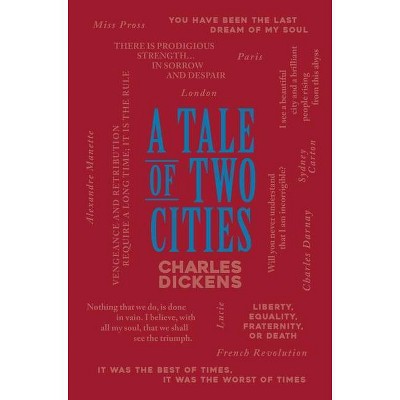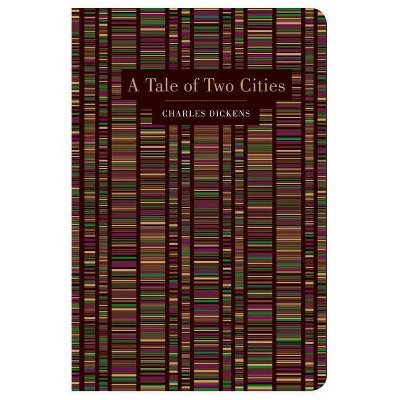A Tale of Two Cities - by Charles Dickens (Paperback)
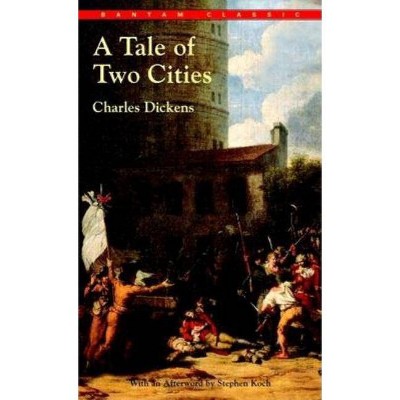
Similar Products
Products of same category from the store
AllProduct info
<p/><br></br><p><b> About the Book </b></p></br></br>Dickens's classic tale of the French Revolution brings to life a time of terror and treason, and chronicles a starving people who rise in frenzy and hate to overthrow a corrupt and decadent regime. This 150th anniversary edition features a new Afterword. Revised reissue.<p/><br></br><p><b> Book Synopsis </b></p></br></br>With his sublime parting words, "It is a far, far better thing that I do, than I have ever done..." Sidney Carton joins that exhalted group of Dickensian characters who have earned a permanent place in the popular literary imagination. His dramatic story, set against the volcanic fury of the French Revolution and pervaded by the ominous rumble of the death carts trundling toward the guillotine, is the heart-stirring tale of a heroic soul in an age gone mad. A masterful pageant of idealism, love, and adventure -- in a Paris bursting with revolutionary frenzy, and a London alive with anxious anticipation -- <i>A Tale of Two Cities</i> is one of Dickens's most energetic and exciting works.<p/><br></br><p><b> Review Quotes </b></p></br></br><br>"[<i>A Tale of Two Cities</i>] has the best of Dickens and the worst of Dickens: a dark, driven opening, and a celestial but melodramatic ending; a terrifyingly demonic villainess and (even by Dickens' standards) an impossibly angelic heroine. Though its version of the French Revolution is brutally simplified, its engagement with the immense moral themes of rebirth and terror, justice, and sacrifice gets right to the heart of the matter . . . For every reader in the past hundred and forty years and for hundreds to come, it is an unforgettable ride."-from the Introduction by Simon Schama<br><p/><br></br><p><b> About the Author </b></p></br></br>Charles Dickens was born in a little house in Landport, Portsea, England, on February 7, 1812. The second of eight children, he grew up in a family frequently beset by financial insecurity. At age eleven, Dickens was taken out of school and sent to work in London backing warehouse, where his job was to paste labels on bottles for six shillings a week. His father John Dickens, was a warmhearted but improvident man. When he was condemned the Marshela Prison for unpaid debts, he unwisely agreed that Charles should stay in lodgings and continue working while the rest of the family joined him in jail. This three-month separation caused Charles much pain; his experiences as a child alone in a huge city-cold, isolated with barely enough to eat-haunted him for the rest of his life. <p/>When the family fortunes improved, Charles went back to school, after which he became an office boy, a freelance reporter and finally an author. With <i>Pickwick Papers </i>(1836-7) he achieved immediate fame; in a few years he was easily the post popular and respected writer of his time. It has been estimated that one out of every ten persons in Victorian England was a Dickens reader. <i>Olive Twist </i>(1837), <i>Nicholas Nickleby </i>(1838-9) and <i>The Old Curiosity Shop </i>(1840-41) were huge successes. <i>Martin Chuzzlewit </i>(1843-4) was less so, but Dickens followed it with his unforgettable, <i>A Christmas Carol </i>(1843), <i>Bleak House </i>(1852-3), <i>Hard Times </i>(1854) and<i> Little Dorrit </i>(1855-7)<i> </i>reveal his deepening concern for the injustices of British Society. <i>A Tale of Two Cities </i>(1859), <i>Great Expectations </i>(1860-1) and <i>Our Mutual Friend </i>(1864-5) complete his major works. <p/>Dickens's marriage to Catherine Hoggarth produced ten children but ended in separation in 1858. In that year he began a series of exhausting public readings; his health gradually declined. After putting in a full day's work at his home at Gads Hill, Kent on June 8, 1870, Dickens suffered a stroke, and he died the following day.
Price History
Price Archive shows prices from various stores, lets you see history and find the cheapest. There is no actual sale on the website. For all support, inquiry and suggestion messages communication@pricearchive.us
